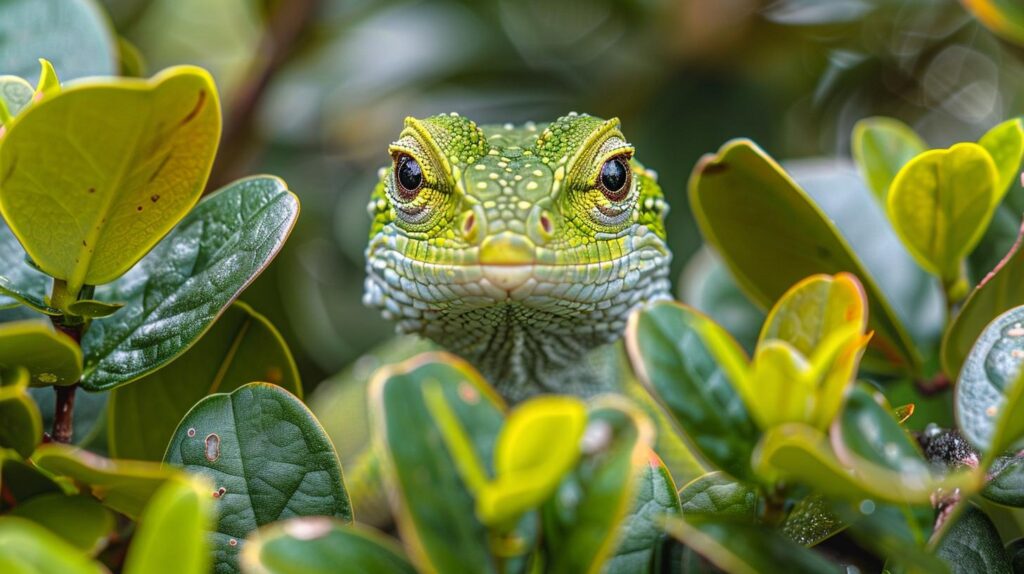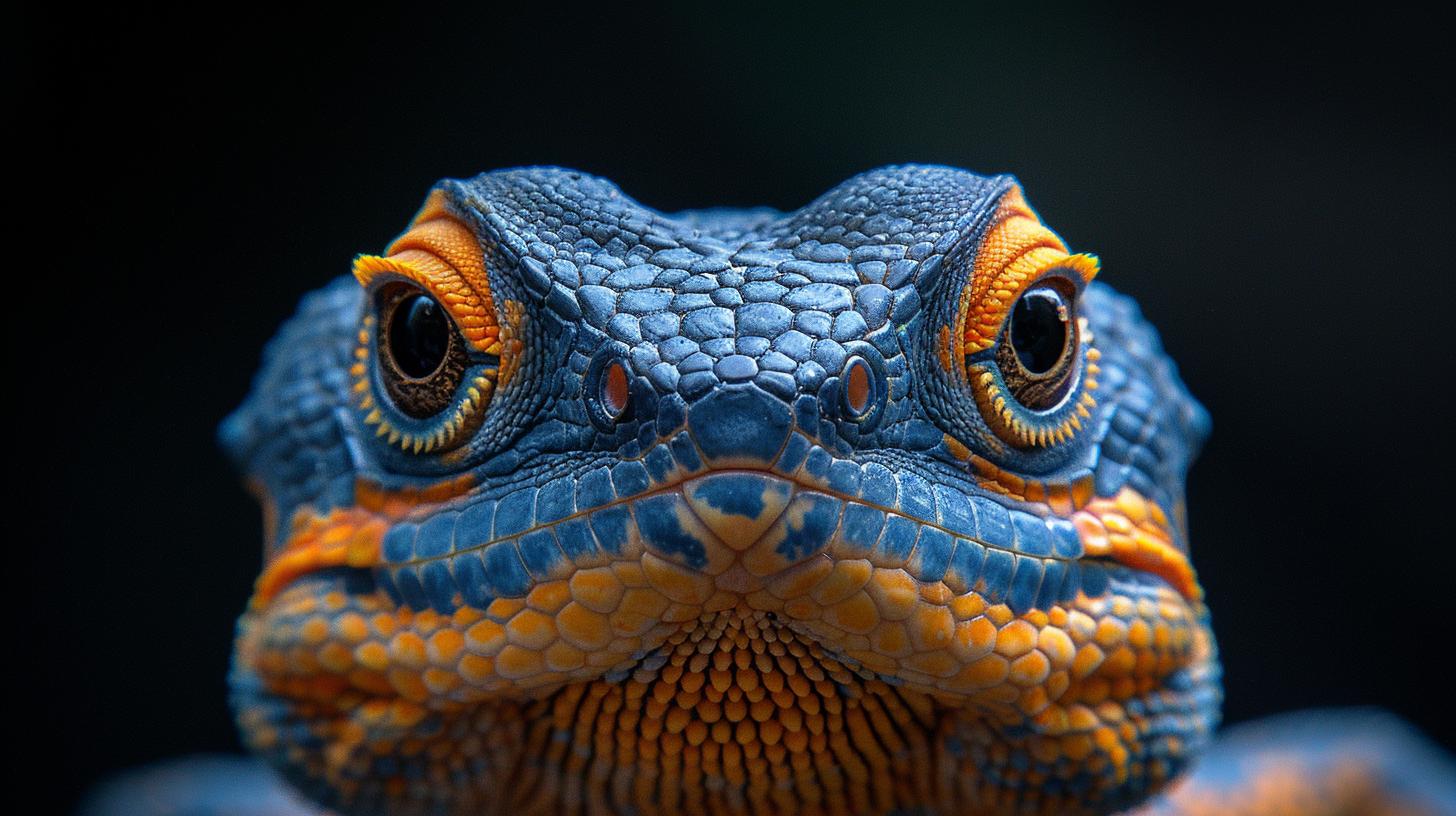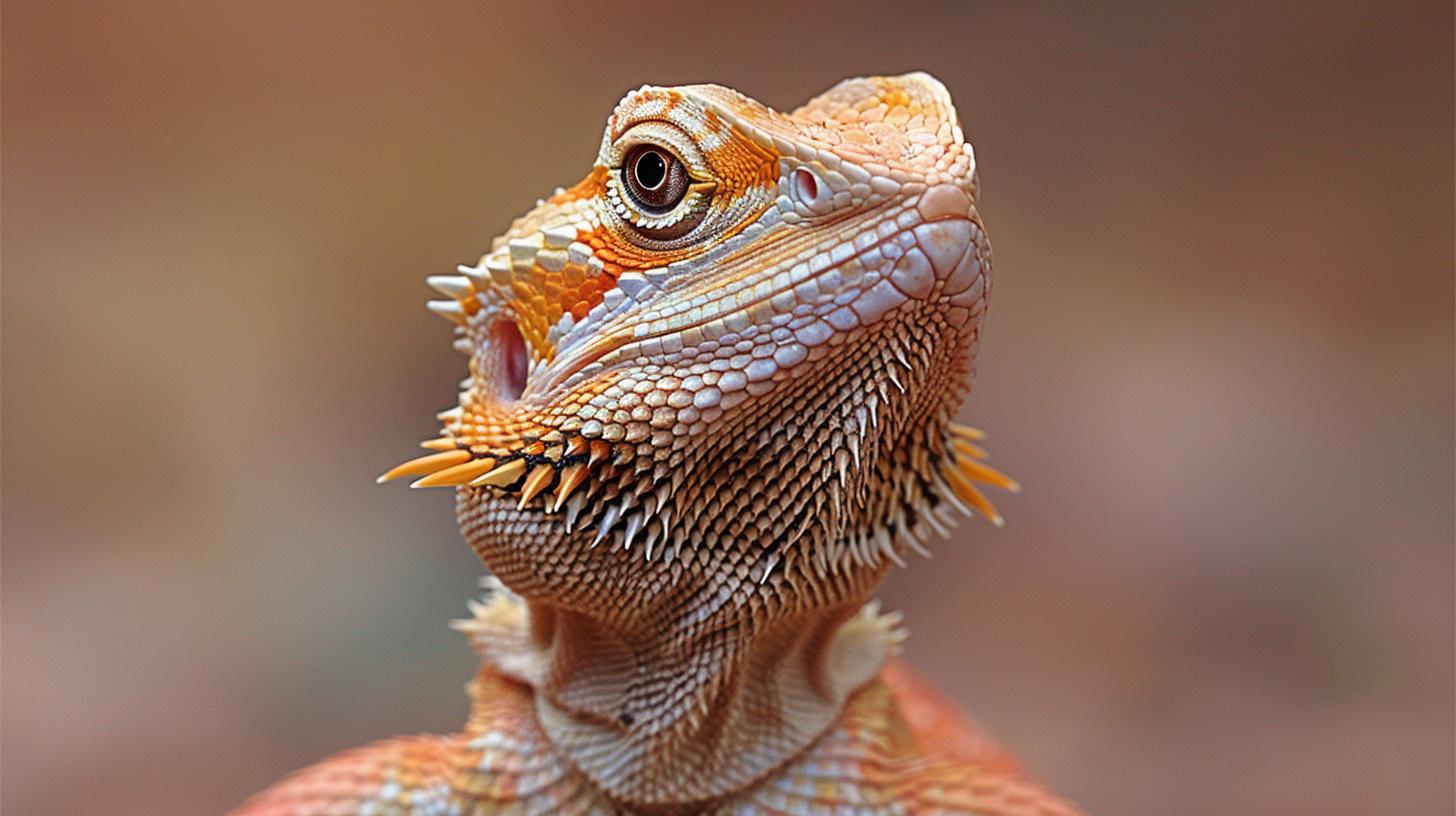3 Keys to Healthy Stress-Free Reptile Pets

Introduction to Reptile Pet Care
As the trend of keeping healthy reptile pets continues to rise, it's pivotal for enthusiasts to debunk common misconceptions and delve into the unique needs of these fascinating creatures. Reptiles, with their diverse species and distinctive physiological requirements, demand a more nuanced approach to care than traditional pets like cats and dogs.
Understanding reptile health, including how stress affects them, lays the foundation for a harmonious pet-owner relationship and ensures the well-being of these exotic companions.
Recognizing stress in reptiles is not always straightforward. Unlike more expressive animals, reptiles often exhibit subtle signs that might go unnoticed without a keen eye. Stress can significantly impact their health, manifesting through behaviors such as decreased appetite, lethargy, or even aggression. The causes range from environmental inadequacies to improper handling. Therefore, understanding these indicators and mitigating factors is indispensable for fostering a serene environment conducive to the thriving of our scaly friends.
Creating an optimal habitat simulates a pivotal role in minimizing stress and promoting vitality among reptile pets A setup that mimally mimics a reptile's natural environment-paying close attention to critical elements like space allocation, temperature gradients, humidity levels, and appropriate lighting-can vastly improve their quality of life.
Furthermore, ensuring that dietary needs are met with precision not only bolsters their physical health but also curtails stress by catering to their instinctual feeding behaviors.
As we delve deeper into the nuances of appropriate nutrition/hydration and gentle handling techniques aimed at reinforcing trust without imposing undue distress on these sensitive beings, it becomes clear that awareness and meticulous care are imperative in nurturing healthy reptiles void of chronic stress-a goal within reach for dedicated pet owners armed with knowledge and compassion.
Understanding Reptile Stress
Recognizing signs of stress in reptiles is paramount to ensuring they lead long, healthy lives. Unlike other pets, reptiles often exhibit subtle indicators of distress that can be easily overlooked by the untrained eye. Common signs include frequent hiding, reduced appetite, irregular shedding, and changes in behavior such as increased aggression or lethargy. Identifying these signs early plays a crucial role in addressing underlying health issues or environmental factors causing discomfort to these sensitive creatures.
The origins of stress in healthy reptile pets can vary widely but tend to revolve around issues related to their habitat, nutrition, or handling. An environment that fails to mimic a reptile's natural habitat closely can be a significant source of stress. This includes incorrect temperature and humidity levels, inadequate space for movement, and lack of proper hiding spots.
Similarly, improper nutrition-either through unbalanced diet offerings or irregular feeding schedules-can contribute to nutritional deficiencies and related stress responses. Lastly, how owners handle their reptiles can greatly impact their stress levels; too frequent or rough handling can be frightening and stressful for these pets.
To effectively combat stress in healthy reptile pets, pet owners must:
- Ensure the habitat is spacious enough and replicates natural conditions including appropriate substrate, - Monitor and maintain optimal temperature and humidity levels, - Provide ample hiding spots and visual barriers within the enclosure, - Implement a balanced diet suited to the specific species' needs, - Engage in gentle and respectful handling practices, - Regularly observe their pet for any signs of stress or discomfort.
Implementing these steps helps foster a comforting environment for reptiles, significantly reducing stress-triggered health issues thereby promoting overall well-being. Moving forward into our discussion on key strategies for maintaining healthy reptile pets, it becomes clear that crafting an ideal habitat is just the starting point. Proper nutrition and hydration emerge as equally pivotal elements in this holistic approach towards preventing stress among our reptilian companions.
Key 1
Creating an optimal habitat setup is fundamental in fostering a stress-free life for healthy reptile pets. This environment plays a pivotal role not only in their physical health but also impacts their emotional well-being significantly. To emulate their natural habitat as closely as possible involves attention to several components, each critical to their overall health. These are space, temperature, humidity, and lighting, which must all be tailored to the specific needs of the species you are caring for.
Firstly, adequate space is vital for your reptile's physical activity and stress reduction. A cramped environment can lead to elevated stress levels, making it harder for them to engage in natural behaviors.
For instance, arboreal reptiles require tall enclosures that allow them to climb, whereas terrestrial species need wider spaces that offer room to roam. Temperature gradients within the enclosure enable reptiles to self-regulate their body temperature by moving between warmer and cooler areas, closely mimicking their natural environment's thermal variability.
| Component | Importance |
|---|---|
| Space | Allows natural behavior and exercise, reducing stress. |
| Temperature Gradient | Enables self-regulation of body temperature. |
| Humidity | Maintains skin health and respiratory function. |
| Lighting | Supports circadian rhythms and vitamin D synthesis. |
Furthermore, maintaining appropriate humidity levels is crucial for preventing skin issues and supporting proper respiratory function. Each species has its ideal humidity range that should be closely monitored and adjusted when necessary. Similarly, lighting not only influences a reptile's circadian rhythm but also assists in Vitamin D synthesis through UVB light exposure; this process is essential for calcium absorption and overall skeletal health. Offering these conditions encourages natural behavior patterns while minimizing undue stress.
The discussions around providing ample space, precise temperature gradients along with suitable humidity levels, and sufficient lighting form the cornerstone of creating an ideal enclosure that promotes the well-being of healthy reptile pets. By focusing on these essential elements within your pet's habitat, you establish a foundation where your reptile can thrive physically and psychologically.

However, achieving this requires continuous learning about the specific needs of your pet's species alongside monitoring adjustments within the enclosure based on observed behaviors or changes in health status-a commitment that underscores your dedication towards maintaining optimal living conditions conducive to their longevity and happiness.
This directive towards creating an enriching living space propels us into considering other aspects of care critical for minimizing stress-namely proper nutrition and hydration-the next key component in supporting robust health among our scaly companions.
Key 2
Ensuring your reptile receives the right balance of nutrients and stays adequately hydrated is paramount to their health and stress levels. Just like in humans, a well-balanced diet supports the immune system of healthy reptile pets, aids in digestion, and plays a crucial role in maintaining overall vitality. However, unlike other pets, reptiles have varied dietary needs that are often specific to their species.
This means that understanding what constitutes a balanced diet for your particular reptile pet is key. From insects and vegetables to specialized pellets, each type of food contributes differently to their nutritional profile.
Water intake is another critical aspect that often gets overlooked in reptile care. Hydration is not only necessary for basic bodily functions but also helps in thermoregulation and shedding processes.
Providing a constant supply of fresh water, regardless of whether your pet drinks directly from a dish or absorbs it through food or the environment, is essential. It's all about recreating aspects of their natural habitat within your home to ensure they not only survive but thrive under your care.
Dietary requirements for reptiles can be complex due to the vast diversity among species. Carnivores, herbivores, omnivores - each has its unique demands for nutrients and feeding schedules. Take carnivorous reptiles such as snakes; they typically require meals consisting of whole prey items which provide an array of necessary vitamins and minerals.
On the flip side, herbivorous species thrive on diets rich in leafy greens and vegetables. Omnivores enjoy the best of both worlds but balancing this mix can sometimes be tricky without overfeeding one type over another. Continual research into the latest dietary requirements and ongoing communication with veterinary professionals can help ensure your reptile's nutrition remains optimal.
The Role of Supplements
Even with a perfectly tailored diet, certain reptiles may still require additional supplementation to meet all their dietary needs adequately. Calcium deficiencies are particularly common among captive reptiles due to limited exposure to natural sunlight which facilitates vitamin D3 synthesis necessary for calcium absorption. Supplements such as calcium powder or multivitamin mixes can be subtly incorporated into their meals, ensuring they receive these vital nutrients without much stress or disruption to their regular eating habits.
Understanding how proper nutrition and hydration contribute significantly towards reducing stress cannot be overstated when caring for healthy reptile pets A lackluster diet can lead not only to physical health issues like metabolic bone disease but also elevate stress levels dramatically, compromising immune function further. By focusing on crafting a diversified and species-appropriate menu-complemented by strategic supplement use when necessary-you create a stable foundation for their physical well-being and emotional state alike.
Key 3
Creating an environment that fosters stress-free handling and interaction is essential for the well-being of healthy reptile pets. Just as humans have unique personalities and comfort levels, so too do reptiles. Understanding and respecting their individual needs can significantly reduce their stress, leading to a happier and healthier life.
For many reptile species, regular but careful handling can promote trust between the pet and its owner. However, it's imperative to approach this practice with care, considering the signals your reptile pet gives off.
To ensure positive interactions that contribute to reducing stress in your reptile pet, consider the following strategies:
- Gradual Introduction: Allow your reptile time to acclimate to your presence before attempting to handle them. Spend time near their habitat each day without making any direct contact. This can help them become accustomed to you being a non-threatening part of their environment.
- Understanding Body Language: Reptiles communicate through subtle cues. A rigid body, hissing, or retreating are signs of distress or discomfort. Conversely, a relaxed posture or curiosity when you're nearby suggests they're more amenable to interaction.
- Gentle Handling Techniques: When handling your reptile pet, use slow movements to avoid startling them. Support their body fully if picking them up is necessary or encouraged for that species.
It's equally important to recognize that some days are better than others for handling your pet. Their willingness can depend on several factors like shedding cycles, recent feedings, or just general mood fluctuations common in living creatures.
Creating sessions of gentle interaction isn't solely about physical touch; it's also about sharing space and building trust over time through consistent positive experiences together. Observing from a distance or speaking softly near them can also impact their perception of safety around humans.
Regular veterinary check-ups play a role in maintaining not only physical health but emotional well-being too. Health issues can cause or exacerbate stress in reptiles; routine medical care ensures these concerns are addressed promptly.
Implementing these thoughtful methods promotes an enriching relationship between you and your healthy reptile pets, cementing a foundation of trust and mutual respect that enhances both their quality of life and yours without concluding this nurturing process as ongoing attentiveness is key for continued improvement in reducing stress among captive reptiles.

Monitoring Health and Stress Levels
As responsible reptile owners, our commitment to the well-being of our pets extends beyond providing a suitable habitat and diet. Observing and understanding the subtle changes in behavior and physical condition of our healthy reptile pets allows us to act promptly to any signs of distress or illness. Given their often stoic nature, reptiles might not show obvious signs of stress or disease until they are significantly affected, making vigilant monitoring crucial for early intervention.
The process of regularly checking on your pet's health involves more than simply watching them eat or move around their enclosure. It encompasses a holistic approach to their overall lifestyle, ensuring that their environment continuously meets their needs and identifying any potential sources of stress before they lead to serious health issues. This proactive stance on health and stress management is key in fostering a thriving life for your reptilian companion.
Recognizing Signs of Stress
Understanding what constitutes normal behavior for your species of reptile is the first step in recognizing stress signals. Common indicators include a change in eating habits, lethargy, frequent hiding, aggressive behavior when previously docile, or excessive pacing. Physical symptoms might manifest as skin discoloration, shedding problems, or unexplained weight loss. Recognizing these signs early can be pivotal in mitigating stressors and consulting with a veterinarian to address any underlying health concerns.
Cause Identification and Mitigation
Identifying the root cause of stress in reptiles can range from environmental factors such as improper lighting or temperature variations to social factors like overcrowding or lack of enrichment elements stimulating natural behaviors. Regularly evaluating your pet's habitat for deviations from the optimal conditions can prevent many common issues related to stress. Additionally, establishing a routine that includes periods of peaceful quietude along with active engagement can help minimize stress levels significantly.
In sum, maintaining an observant eye on behavioral changes and physical symptoms plays an indispensable role in monitoring health and stress levels in healthy reptile pets. By consistently applying a methodical approach to observe your pet's daily activities and physical state, you solidify the foundation for detecting potential issues early on. This vigilance allows for swift action-either through environmental adjustments or professional medical intervention-to ensure the sustained health and happiness of your scaly friend.
Bringing It All Together for Your Reptile’s Well-Being
As we delve into the intricacies of maintaining a wholesome environment for our scaly friends, it becomes clear that a stress-free life is not just a luxury but a necessity for healthy reptile pets. The journey through understanding their unique needs, recognizing signs of stress, and implementing strategies for optimal care provides us with invaluable insights.
From the vital components of their habitat-such as appropriate temperature, lighting, and space-to ensuring they receive proper nutrition and hydration, every aspect plays a pivotal role in their overall well-being. By embracing these practices, we can transform our knowledge into action, creating sanctuaries that mimic their natural habitats and foster their health.
Furthermore, the art of handling and interacting with reptiles requires patience and sensitivity towards their cues. This respect for their boundaries not only strengthens our bond with them but also significantly reduces potential stressors, contributing to more harmonious coexistence.
Regular monitoring of their health and stress levels becomes not just an act of care but a dialogue-a way to understand them better and respond to their needs promptly. Through this continuous learning process, we don't just cater to the basic needs of our reptile pets but elevate their quality of life.
To those who have embarked on this rewarding journey of reptile care or are contemplating doing so, let this be your guide towards fostering environments where your reptile pets thrive stress-free. We invite you to delve further into our website's reservoir of knowledge-whether you seek detailed care guides or wish to connect with fellow enthusiasts.
Our articles are crafted with dedication to nurturing informed communities that celebrate the joy these remarkable creatures bring into our lives. Let's continue exploring together-because when it comes to providing for our silent yet expressive companions, there's always room for growth and discovery.
Frequently Asked Questions
What Is the Safest Reptile Pet?
The safest reptile pet for both beginners and experienced handlers tends to be the Leopard Gecko. These small, nocturnal reptiles are known for their docile nature and reluctance to bite, making them ideal companions for families or individuals seeking a low-risk pet. Additionally, their care requirements are straightforward, contributing to their status as a safe option.
What Reptile Is Low Maintenance?
When considering a low-maintenance reptile pet, the Bearded Dragon stands out due to its relatively easy care requirements compared to other reptiles. They require a basic setup of a terrarium, UV lighting, and a consistent diet of insects and vegetables. Their friendly disposition towards handling also makes them less demanding emotionally than some more sensitive species.
What Is the Most Affectionate Reptile Pet?
Among reptiles known for showing signs of affection towards their handlers, Bearded Dragons are often recognized as the most 'affectionate.' They are known to enjoy being handled and stroked by their owners and can show social behaviors such as arm waving or head bobbing that may indicate recognition or sociability.
What Reptile Is Right for Me?
Choosing the right reptile pet depends on several factors including your lifestyle, time commitment, financial budget for care supplies and veterinary visits, and personal preference regarding handling and interaction levels with the pet.
To start, ask yourself what size of reptile you can accommodate, how much daily interaction you seek with your pet, and how much time you can dedicate to its care.
What Reptiles Bond With Humans?
Various types of reptiles show signs of bonding with humans through recognizable behaviors like seeking attention when they see their owner or calmly resting in their hands during interactions. Bearded Dragons and Leopard Geckos are particularly noted for these tendencies; they seem to recognize and respond positively to frequent interaction from their human counterparts.
Do Pet Reptiles Carry Disease?
Yes, pet reptiles can carry diseases that are transmissible to humans, including Salmonella bacteria. It is vital to practice good hygiene when handling any type of reptile by washing hands thoroughly before and after contact with the animal or anything in its environment. This care step minimizes risks but does not completely eliminate the possibility of disease transmission.
Leave a Reply
You must be logged in to post a comment.